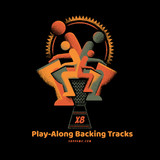Hand Drums and Percussion in the Classroom
Music brings joy to people of all ages, but there is a special thrill watching children learn and grow as they are exposed to the magic of song. Children are natural musicians, from baby rattles to singing about the alphabet or dancing to School House Rock. In addition to the creative expression that music allows, the benefits of music in the classroom are life-long, from easing health issues as we age to increasing academic performance. Children exposed to music and rhythm can focus better, have increased self-confidence, and a true delight to behold in the classroom and beyond.
Music programs in schools are an important part of this growth. The classroom environment lends itself perfectly to an atmosphere of exploration and exposure, giving children the ability to pick up a Djembe or shekere and discover a connection to the world of music. Rainsticks bring a sense of wonder at the sounds of nature, while simple shakers allow the shyest of children to become part of the group. Some of the greatest musicians were first exposed to music through the playful nature of the bongos, or the plucking of a kalimba. The discovery of the sounds of the world through hand percussion instruments can lead to further accomplishments in school and an understanding of the world.
Research shows that the benefits of music in the classroom are social, personal and linked directly to success in school. Music helps with reading comprehension, spatial and logical reasoning, math and science. It also provides a necessary creative outlet that can be imperative for stress and anxiety reduction, ultimately leading to healthier, happier children. Plus, music is fun. Beating out a rhythm on a Djembe shows children that life is not all work, but also, that play is just as important.
Creating a classroom that promotes the use of music and rhythm during instruction and play time can be a wholly beneficial project that helps the overall classroom dynamic as well as the individual children involved. Teachers and instructors can benefit from the integration of music in the curriculum, allowing a change of pace that brings interest and enjoyment to one of the hardest jobs in the world. Beat a drum, and let the children pick up a rhythm of their own. The classroom experience is one of the most memorable times in a person’s life, and making it fun and musical is a benefit that can last a lifetime.
Recent Posts
-
X8 Drums Play-Along Backing Tracks
The new X8 Play-Along Series is being produced for our musician friends wanting a fresh way to work …9th Feb 2025 -
What is the Best Size Djembe for Beginners?
If you're new to the world of percussion and interested in learning the djembe, you're in for a t …16th Jul 2024 -
The Benefits of Becoming a Drumming Teacher: Transforming Passion into Profession
Why become a drumming teacher? Becoming a drumming teacher is an excellent way to share your pas …22nd May 2024



